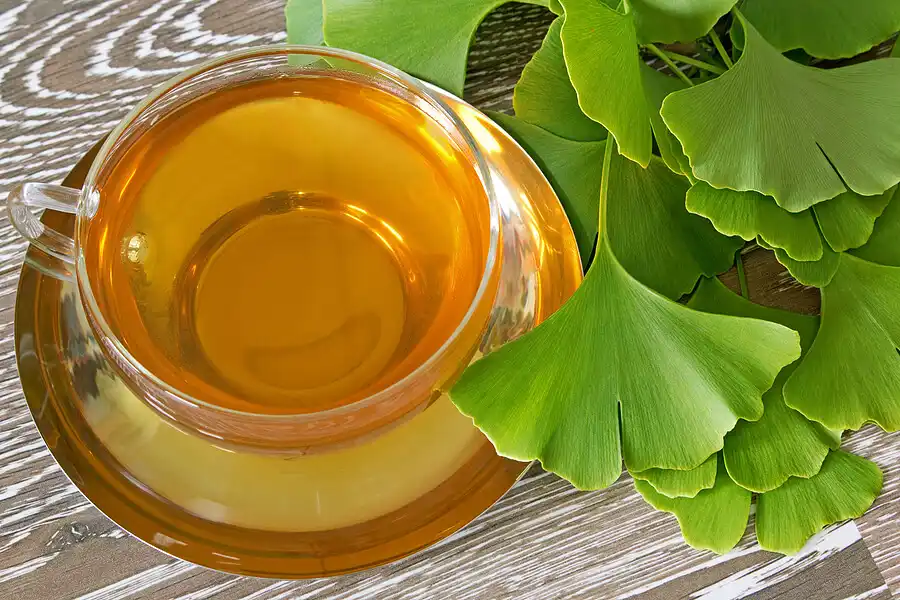Six Home Remedies to Help Reduce Tinnitus


Reviewed and approved by the doctor Karla Henríquez
To relieve tinnitus, it’s important to determine its cause. This condition, also known as ringing in the ears can be the symptom of a build-up of wax, an infection, injury, or, in rare cases, a major disease such as hearing loss, or circulatory disorders, among others.
An article published in the Journal of Clinical Neurology explains that tinnitus is the perception of a sound in the absence of real noise. It can be slight but sometimes becomes louder than a sound from an external source. Sufferers compare the sensation to hearing crickets, wind, dripping water, or grinding steel. Nevertheless, this can vary from person to person.
The discomfort usually goes away on its own after several minutes. However, if it’s persistent or recurs frequently, it’s best to consult your general practitioner or specialists such as an audiologist or otolaryngologist. In mild cases, some home remedies can be useful. You can find out about them here.
Home remedies to relieve tinnitus
There are various traditional home remedies to relieve tinnitus. That said, to date, insufficient evidence exists regarding their safety and efficacy. Therefore, it’s important to use them with caution and not apply them as substitutes for any therapies suggested by a medical professional.
If there’s a suspicion of any underlying infections, injuries, or other illnesses, it’s best to consult a doctor first before trying these remedies. In fact, in these cases, their use could be counterproductive. Now, let’s take a look at the best-known remedies.
You might also like to read: What Does Ringing in the Ears Mean?
1. Ginkgo Biloba
Ginkgo biloba has long been used in traditional Chinese medicine as a supplement to speed relief from ringing in the ears. Its supposed effects are explained by its potential as a cerebral vasodilator and neuronal protector.
However, as a review in the journal, Medwave explains, it’s unclear whether this actually translates into real clinical benefit. Indeed, in the studies carried out in this regard, no conclusive results have been obtained.
Therefore, the researchers concluded that this Ginkgo biloba “does not reduce the intensity of tinnitus or improve the quality of life of patients”. If despite this, you want to try it, you can find it in the form of capsules, powder, tea, and extracts.
Make sure you check the consumption recommendations and don’t exceed the suggested doses. It’s not suitable for pregnant and lactating women, people sensitive to bleeding, or intestinal disorders, and those who are about to undergo surgery.

2. Sesame seed oil
One of the home remedies used in Ayurveda medicine to relieve tinnitus is sesame seed oil. According to this traditional system, the ingredient helps calm Vata, which refers to the body’s energy that controls the nervous system and higher mental functions.
However, it’s important to clarify that, to date, there’s no scientific evidence to support these properties. Anecdotal data suggests that sesame seed oil works by softening earwax that clogs the ear canal. Therefore, its occasional use is recommended for tinnitus derived from excess wax.
Simply apply five to eight drops of warm sesame oil to each ear. Then, tilt your head so that the product reaches the inside of your ear. After a few minutes, drain the excess oil.
3. Garlic oil
Garlic is one of the ingredients valued in traditional medicine for its anti-inflammatory and antimicrobial properties. As far as the ears are concerned, the drops of its oil have been used as a treatment to calm tinnitus.
In this regard, research shared in the Archives of Pediatrics and Adolescent Medicine reported that naturopathic ear drops containing garlic (Allium sativum) and other herbal ingredients helped reduce pain.
However, it’s important to consider that garlic and its derivatives can cause skin irritation or burns. Therefore, you should do a patch test before use. If redness, tingling, or irritation occurs, it’s best not to use it.
Ideally, you should use garlic oil or naturopathic garlic formulas. Apply three to five drops to the ear and tilt your head. After a few minutes, drain the excess oil.
4. Olive oil
Olive oil can help reduce tinnitus when it’s caused by an accumulation of wax in the ear canal. Drops of this oil act as an earwax softener, as confirmed in an article shared by the National Center for Biotechnology Information.
Its use is similar to that of the other oils. Apply three to five drops of the warm product to the ear canal. Let it act for a few minutes then drain off the excess oil.
5. Apple cider vinegar
In traditional medicine, apple cider vinegar is a well-known remedy for relieving tinnitus. Its antibacterial and anti-inflammatory properties are believed to contribute to its positive effects. However, to date, no conclusive evidence exists regarding its benefits in this regard.
Diluted in water, apple cider vinegar is considered safe for most people. Simply combine equal parts of apple cider vinegar with water and put three to five drops in each ear.
6. Hydrogen Peroxide
As stated in an article shared by the National Center for Biotechnology Information, hydrogen peroxide acts as a cerumenolytic agent. In this sense, its application can help alleviate tinnitus caused by an accumulation of wax.
It’s important to keep in mind that you should only use solutions formulated with hydrogen peroxide recommended for use in the ears. That’s because usage of the ingredient on its own could pose a risk if it’s not used properly or if there’s any undiagnosed injury.

You might also be interested to read: Remove Earwax Blockage without Damaging Your Ears
Are there other alternatives to relieve tinnitus?
Home remedies often help soothe tinnitus when it occurs only occasionally. However, if the symptoms become recurrent, you should get a medical diagnosis in order to obtain a more effective treatment.
In the consultation, the professional will try to determine if the discomfort is due to an underlying disease. They may suggest the following tests:
- Physical exploration.
- Hearing (audiological) exam.
- Imaging tests (CT scans or MRIs).
- Lab tests.
What are the treatment options?
It all depends on the cause. At a general level, there are other strategies that can be implemented to reduce the symptoms. These encompass the following:
- Limit exposure to the triggering agent. This could be a certain medicine, food, or drink. The most common are aspirin, products with excess sodium, caffeinated stimulants, and alcohol.
- Avoid cigarette consumption. Firstly, it’s stimulating and can make tinnitus worse. Secondly, it affects the nerve cells that control hearing.
- Listen to soothing sounds. In times of great silence, the buzzing can become more noticeable. If so, a good option is to listen to relaxing sounds (such as those of nature) or soft background music.
- Practice relaxation techniques. Situations of stress and tension trigger or worsen the symptoms of tinnitus. For this reason, it’s worth spending a few minutes practicing a relaxation technique. For instance, you could try yoga, tai chi, meditation, and progressive relaxation, among others.
- Sleep well. Good quality sleep helps prevent tinnitus because it reduces fatigue and stress. Therefore, it’s important to ensure you sleep for seven to eight hours every night.
- Protect your hearing. This involves self-care measures such as moderating the volume when listening to music. Also, using earplugs in extremely noisy environments or jobs.
- Do physical exercise. The regular practice of physical activity reduces the impact of problems associated with tinnitus, such as stress, depression, and sleep disorders. Try to spend at least 20 minutes exercising, three to five times a week.
Medical treatment
If the tinnitus doesn’t improve with self-care measures, the doctor may suggest other therapies to try to control it and improve your quality of life. In the same way —and depending on the determined cause— they may suggest some medications (anxiolytics, antidepressants, vasodilators, among others).
The most used therapies are the following:
- Tinnitus Retraining Therapy (TRT). It combines sound masking with audiologist-guided measures.
- Cognitive behavioral therapy (CBT). A psychologist carries out this therapy. It’s usually suggested when tinnitus is associated with situations of stress, depression, irritability, and other emotional problems.
- Masking devices. They’re similar to headphones and reproduce white noise.
- Earwax removal.
- Treatment of blood vessel conditions (may involve medication or surgery).
Some additional advice about tinnitus
There may be many reasons for tinnitus. Hence, it’s important to consult your doctor if they become recurrent. Indeed, although it’s possible to soothe the symptoms with these remedies, it’s best to obtain a proper diagnosis so you can choose the most appropriate treatment according to the origin of the condition.
The doctor might suggest other treatments such as drugs, cognitive behavioral therapy, noise-canceling headphone therapy, and changes in lifestyle, among others. They can also establish if there’s any risk of complications.
All cited sources were thoroughly reviewed by our team to ensure their quality, reliability, currency, and validity. The bibliography of this article was considered reliable and of academic or scientific accuracy.
- Acúfenos Otín Lucas. (2020). Terapia sonido para zumbidos de oídos | Generador sonido tinnitus [Vídeo]. YouTube. https://www.youtube.com/watch?v=DcqHB0Nkx8A
-
Bazoni, J. A., Dias, A. C. M., Meneses-Barriviera, C. L., Marchiori, L. L. M., & Teixeira, D. C. (2019). Possible Association between the Lack of Regular Physical Activity with Tinnitus and Headache: Cross-sectional Study. International Archives of Otorhinolaryngology, 23(4), 375–379. https://www.ncbi.nlm.nih.gov/pmc/articles/PMC6805190/
- Ciminelli, P., Machado, S., Palmeira, M., Carta, M. G., Beirith, S. C., Nigri, M. L., Mezzasalma, M. A., & Nardi, A. E. (2018). Tinnitus: The Sound of Stress?. Clinical Practice and Epidemiology in Mental Health : CP & EMH, 14, 264–269. https://www.ncbi.nlm.nih.gov/pmc/articles/PMC6407646/
- Grossan, M. Peterson, D. C. (). Tinnitus. StatPearls. https://www.ncbi.nlm.nih.gov/books/NBK430809/
- Jun, Hyung Jin, and Moo Kyun Park. (2013). Cognitive behavioral therapy for tinnitus: evidence and efficacy. Korean Journal of Audiology, 17(3), 101-4. https://www.ejao.org/journal/view.php?doi=10.7874/kja.2013.17.3.101
-
Kramer, F., & Ortigoza, Á. (2018). Ginkgo biloba for the treatment of tinnitus. Medwave, 18(06), 7294–7294. https://www.medwave.cl/puestadia/resepis/7295.html
- Lelic, D., Caporali, S., Parker, D., Nielsen, J., & Balling, L. W. (2024). Impact of a combination sound therapy on tinnitus distress: an exploratory one-year longitudinal study. Frontiers In Audiology And Otology, 2. https://www.frontiersin.org/journals/audiology-and-otology/articles/10.3389/fauot.2024.1322596/full
- Liu, D., Hu, Y., Wang, D., Han, H., Wang, Y., Wang, X., Zhou, Z., Ma, X., & Dong, Y. (2023). Herbal medicines in the treatment of tinnitus: An updated review. Frontiers in Pharmacology, 13, 1037528. https://www.ncbi.nlm.nih.gov/pmc/articles/PMC9847569/
- McKenna, L., Marks, E. M., Hallsworth, C. A., & Schaette, R. (2017). Mindfulness-Based Cognitive Therapy as a Treatment for Chronic Tinnitus: A Randomized Controlled Trial. Psychotherapy and Psychosomatics, 86(6), 351–361. https://pubmed.ncbi.nlm.nih.gov/29131084/
- Milinski, L., Nodal, F. R., Vyazovskiy, V. V., & Bajo, V. M. (2022). Tinnitus: at a crossroad between phantom perception and sleep. Brain Communications, 4(3). https://academic.oup.com/braincomms/article/4/3/fcac089/6563428
- Mostashari, P., & Mousavi Khaneghah, A. (2024). Sesame Seeds: A Nutrient-Rich Superfood. Foods (Basel, Switzerland), 13(8), 1153. https://www.ncbi.nlm.nih.gov/pmc/articles/PMC11049391/
- Oppitz, S. J., Garcia, M. V., Bruno, R. S., Zemolin, C. M., Baptista, B. O., Turra, B. O., Barbisan, F., Cruz, I. B. M. D., & Silveira, A. F. D. (2022). Supplementation with açaí (Euterpe Oleracea Martius) for the treatment of chronic tinnitus: effects on perception, anxiety levels and oxidative metabolism biomarkers. Suplementação com açaí (Euterpe Oleracea Martius) para o tratamento do zumbido crônico: efeitos na percepção, níveis de ansiedade e biomarcadores de metabolismo oxidativo. CoDAS, 34(4), 20210076. https://www.ncbi.nlm.nih.gov/pmc/articles/PMC9886123/
- Patil, J. D., Alrashid, M. A., Eltabbakh, A., & Fredericks, S. (2023). The association between stress, emotional states, and tinnitus: a mini-review. Frontiers In Aging Neuroscience, 15. https://www.frontiersin.org/journals/aging-neuroscience/articles/10.3389/fnagi.2023.1131979/full
- Música Para Dormir y Sonidos de la Naturaleza. (2020). Ruido Blanco para Aliviar el Tinnitus. Spotify. https://open.spotify.com/intl-es/track/7wSpjSTOQGBoV6xrBATLiR
- Sevy, J, O., & Singh, A. (1 de marzo de 2023). Cerumen Impaction Removal. StatPearls. https://www.ncbi.nlm.nih.gov/books/NBK448155/
- Wang, T. C., Chang, T. Y., Tyler, R., Lin, Y. J., Liang, W. M., Shau, Y. W., Lin, W. Y., Chen, Y. W., Lin, C. D., & Tsai, M. H. (2020). Noise Induced Hearing Loss and Tinnitus-New Research Developments and Remaining Gaps in Disease Assessment, Treatment, and Prevention. Brain Sciences, 10(10), 732. https://www.ncbi.nlm.nih.gov/pmc/articles/PMC7602100/
This text is provided for informational purposes only and does not replace consultation with a professional. If in doubt, consult your specialist.








